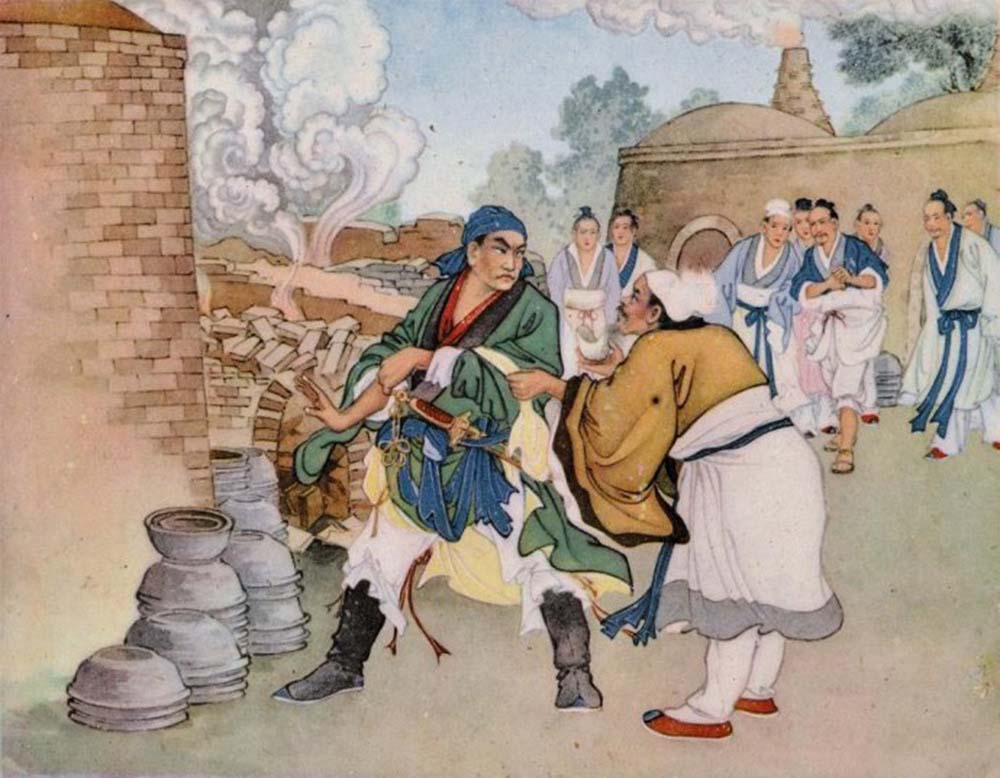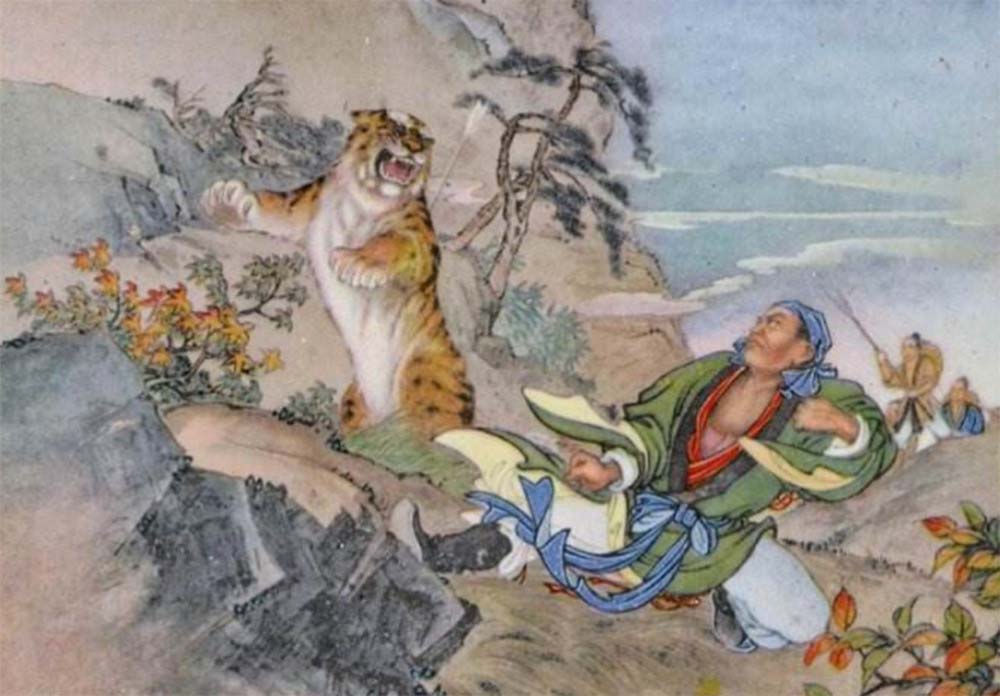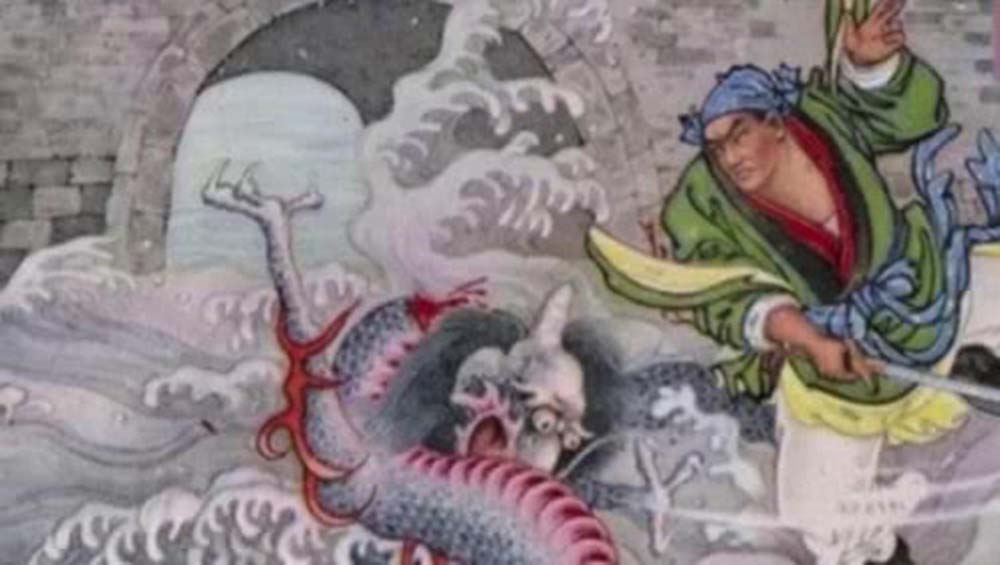Zhou Chu (周處) of the kingdom of Wu (吳) had lost his father at a young age during the Three Kingdoms Period (222-280 AD). By the time he turned 20, he was already a man of great strength that no ordinary person could match. But he had never cared to learn good manners and right conduct and often created trouble in the village.
Year later, however, he would reform himself after an encounter in 247 AD with an old villager.

“This year is a bountiful year of harvest. Why is it that the people are still unhappy?” he asked the old man.
He added, “What are the three evils?”
The old man then listed the three evils: “The white forehead tiger of South Hill that eats the people, the flood dragon that eats people in the water under the long bridge – and you.”
Zhou Chu felt sad upon learning that the people in the village considered him as a vermin. He couldn’t bear it and decided to eliminate the evils for the people.
He went first to South Hill and shot dead the white forehead tiger with an arrow.
Then he jumped into the water and fought with the flood dragon for three days until he killed it eventually.

When Zhou Chu failed to return for three days, the village folks thought he was dead and began celebrating. When he came back to the village and saw the people celebrating his absence, he realized how unpopular he was. He became more determined to rectify his errors.
Zhou Chu approached Lu Yun (陸雲), a famous scholar of Wu, and unburdened himself. He told Lu Yun that he wanted to study but felt anxious because of his age.
Lu Yun advised him, “Our forefathers had taught us that when you learn of your mistakes in the morning, you rectify it in the evening. Don’t worry about your future, the only problem is that you lack ambition.”

With Lu Yun’s encouragement, Zhou Chu put all his energy into his studies and followed the example of loyal officials and dutiful sons of previous eras.
A year later, the village people changed their view of Zhou Chu.
Zhou Chu later became an official of the kingdom and died fighting in the battlefield. — First published in Tulay Fortnightly, Chinese-Filipino Digest 29, no. 12 (November 15-December 5, 2016): 5.